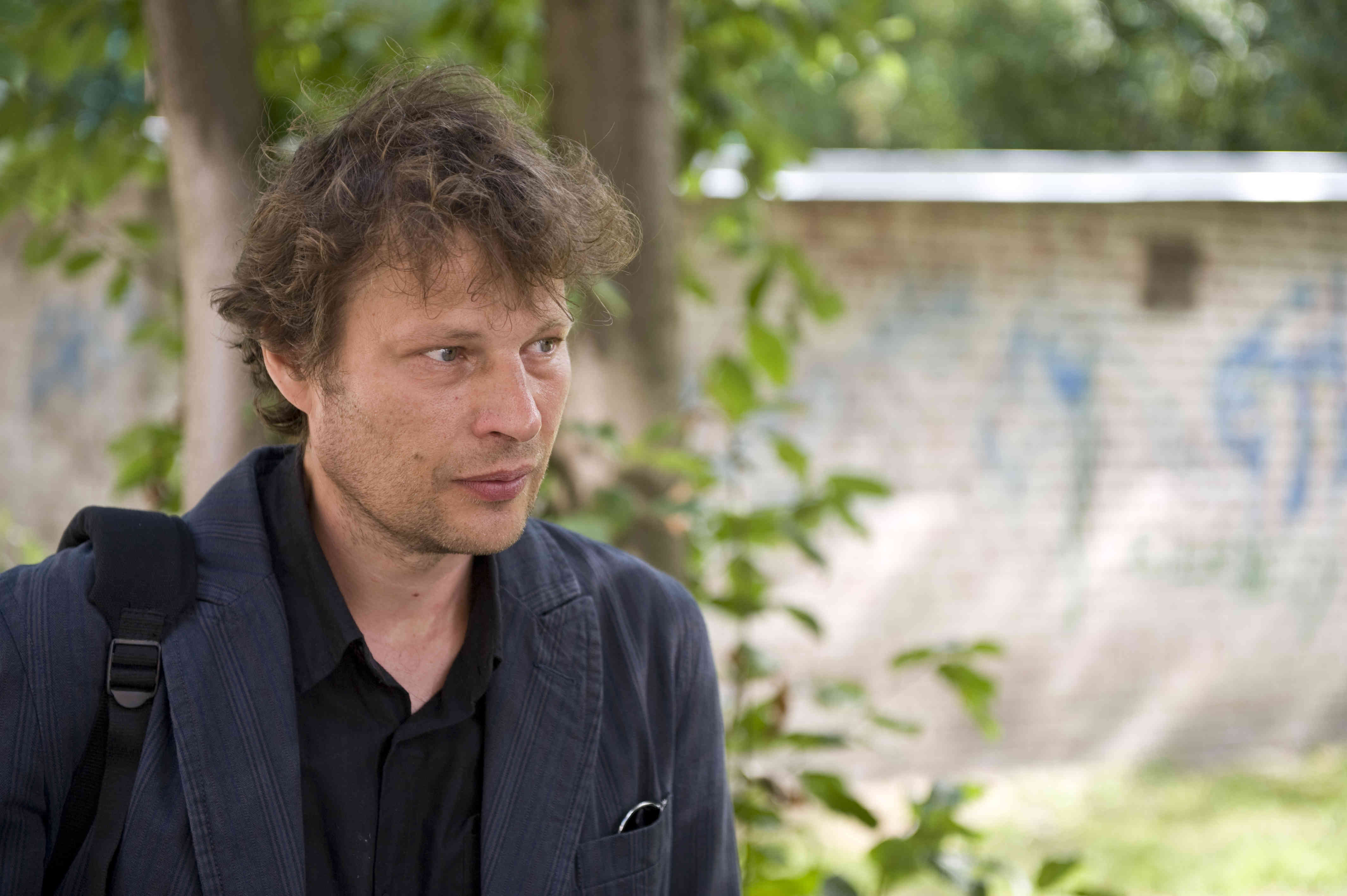
Andrei Hvostov
Short stories 
Non-fiction
About Andrei Hvostov
Andrei Hvostov (b. 10. VII 1963) is a journalist and writer.
He was born in Jõhvi, the son of an Estonian mother and a Russian father; he has lived at Sillamäe. He studied in Sillamäe, Jõhvi and Tallinn. In 1988 he graduated from Olustvere Agricultural College in apiculture, and in 1995 from the University of Tartu in history. He attended lectures at the Free University of Berlin. He belongs to the Estonian Students Society and the Estonian Defence League; in 2005 he was granted the rank of sub-lieutenant. He has worked as a journalist, mostly for the newspaper Eesti Ekspress. He obtained the Concord Award (Koosmeele Auhind) in 1998 for his treatment of the subject of national minorities, the Order of the White Star, V Class in 2006, the annual award of the Estonian Journalists’ Association in 2008.
Both as a journalist and as a writer Hvostov has been noted for setting up sharp, unadorned and unexpected subject-matter. Because of his Russian name he was for a long time branded with the status of the so-called ‘vigilant Russian’; in both his journalistic and his literary work he has dealt with the issue of national minorities. He won lively acclaim for his historical essay Mõtteline Eesti (‘Imaginary Estonia’, 1999), in which Hvostov presents the idea that Estonian history may be considered differently to the usual way.
History has provided the material for several works of fiction: Henrik: näidend 12 pildis (‘Henrik: a play in 12 scenes’, 2006), Projektijuht Posse (‘Posse the Project Manager’, 2008) and Võõrad lood (‘Foreign Stories’, 2008), which concentrates mostly on Russian themes. From this last-named collection came the story Sinised mäed (‘Blue Hills’, Tuglas Short Story Prize in the same year), which refers to a controversial event in Estonian history, the battles in the Blue Hills of eastern Estonia in 1944.
The autobiographical work Sillamäe passioon (‘Sillamäe Passion’, 2011) casts a look at the author’s childhood and youth, as well as at a closed military town of the Soviet era, where the majority of the inhabitants are Russian immigrants. Here, as in many of Hvostov’s journalistic works, the characteristic approach is masculine and in places brutally honest. The book won the annual literary prize of the Cultural Endowment of Estonia in 2011 and the Virumaa Literature Prize in 2012. Kirjad Maarale (‘Letters to Maara’, 2019), at once both a memoir and a guide, is the imaginary continuation of Sillamäe passioon, addressed to the author’s grandchild Maara in her future when she will be 33 years old. Kirjad Maarale won the Journalist of the Year award in 2019.
Hvostov’s novel Lombakas Achilleus (‘Lame Achilles’, 2004 offers a glimpse into the world of Tartu students, where an important place belongs to alcohol and debating, while Šokolaadist prints (‘The Chocolate Prince’, 2016) looks at the world of journalism and the making of an antipathic character.
The volume Labürint all vasakus nurgas (‘Labyrinth in the Bottom Left Corner’, 2025), published in the prestigious series Eesti mõttelugu (‘History of Estonian Thought’), includes pieces published in newspapers and magazines from 1994-2014.
A. K. (Translated by C. M.)
Books in Estonian
Novels
Lombakas Achilleus. Tallinn: Eesti Ekspressi kirjastus, 2004, 353 lk.
Šokolaadist prints. Tallinn: Hea Lugu, 2016, 383 lk.
Stories
Projektijuht Posse. Tallinn: Kultuurileht (Loomingu Raamatukogu), 2008, 55 lk.
Võõrad lood. Tallinn: Tänapäev, 2008, 171 lk.
Plays
Henrik. Tallinn: Kultuurileht (Loomingu Raamatukogu), 2006, 71 lk.
Non-fiction
Mõtteline Eesti. Tallinn: Vagabund, 1999, 323 lk. [2. trükk: 2005.]
Sillamäe passioon. Tartu: Petrone Print, 2011, 304 lk. [2. trükk: 2014.]
Kirjad Maarale. Tartu: Petrone Print, 2019, 269 lk.
Labürint all vasakus nurgas. Tekste aastaist 1994-2014. Tartu: Ilmamaa, 2025, 374 lk.


